And yet she smiles. Gang raped numerous times as a child. Forced into pick pocketing. Caned till she was unconscious. Sold to a madame. Hajera Begum’s life has little that would give cause to smile. Yet she smiles. She cries too. Not because of the gang rapes, or the beating, or the many years she lives in the streets as a rag picker, but when she remembers that a man who worked in an NGO, refused to work in her team because she was a sex worker.
It was that moment that Hajera decided she would make sure it was different for others like her. She had earlier set up a self-help group for sex workers, but eventually, with the help of some university students and other friends and a generous journalist, set up an orphanage for abandoned kids. They are mostly children of sex workers. Some are children of drug addicts. A few are children of parents who simply couldn’t afford to keep them. Hajera and her thirty children live in five small rooms near Adabor Market 16, on the edge of Dhaka. Run entirely by volunteers, she has only one paid staff, the cook. “What will I do with a salary” she says. We share what food we have. I have a roof over my head and I have my children.
Remarkably, Hajera is not bitter. While she remembers every detail of her nightmarish life, she also remembers the friends who believed in her, and helped her set up the orphanage. Instead of remembering that she is incapable of bearing children because of brutal unwanted sex, she basks in the warmth of the 30 children who now call her mother.
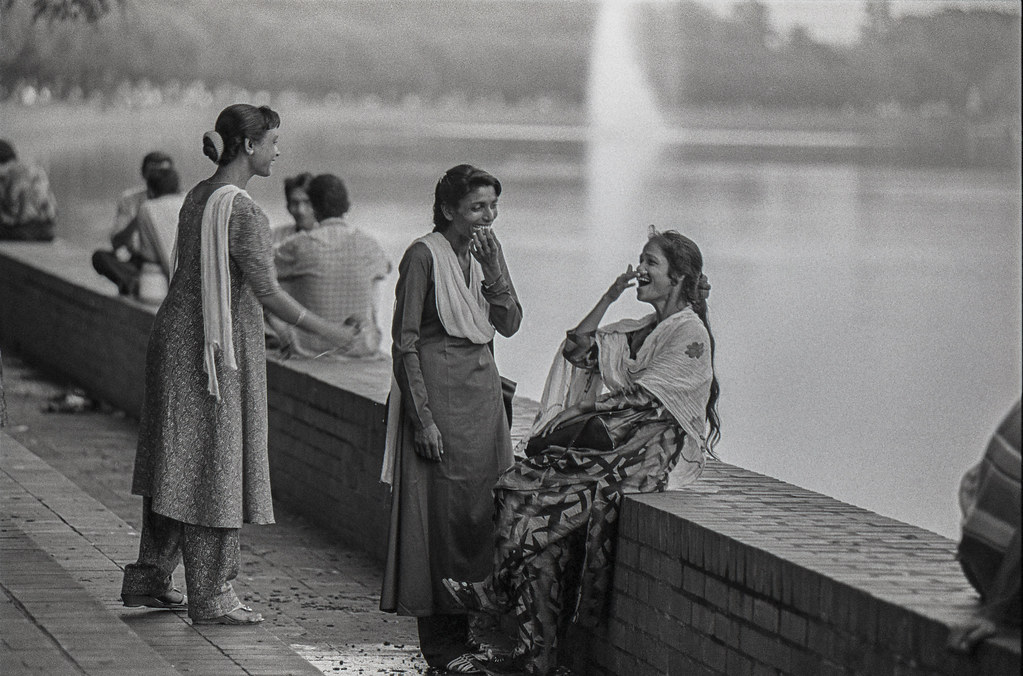 Hajera (right) and her friends by Crescent Lake in the parliament grounds. 1996. Photo: Shahidul Alam/Drik/Majority World[/caption]
Hajera (right) and her friends by Crescent Lake in the parliament grounds. 1996. Photo: Shahidul Alam/Drik/Majority World[/caption]
When I first met Hajera, back in 1996, she was a sex worker based in the grounds of the house of parliament. We became friends, and she and her friends would often visit us in our flat, an unacceptable act in most homes.
Hajera was a sex worker who set up a self help group for sex workers called Durjoy. She now runs an orphanage for 30 children, who are mostly children of sex workers. Some are children of drug addicts, a few are children of other low income families. They have all been abandoned. 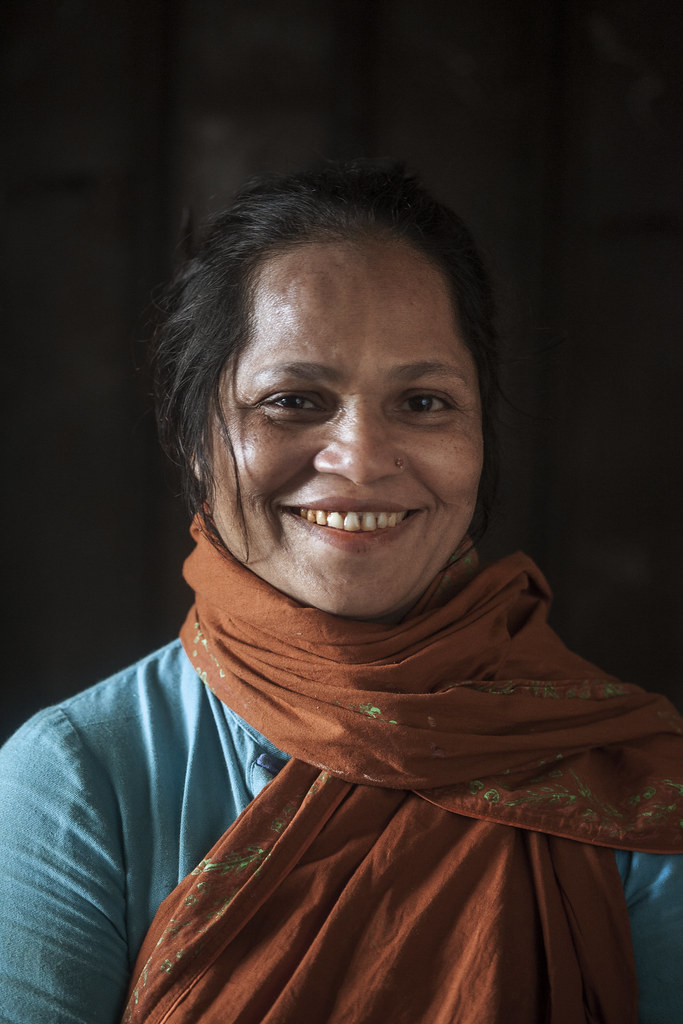 Hajera at her orphanage. 16 Adabor Market. Dhaka. Bangladesh. Oct 2014. Photo: Shahidul Alam/Drik/Majority World[/caption]
Hajera at her orphanage. 16 Adabor Market. Dhaka. Bangladesh. Oct 2014. Photo: Shahidul Alam/Drik/Majority World[/caption]
“You hugged me today when you saw me in the street, just like the old times. That’s something men will never do. They will have sex with me, grope me in the dark, rape me if they get the chance, but they will never hug me, as a sister, as a friend. That is what I want for my children. That they will grow up with dignity, in a world where they will be loved.”
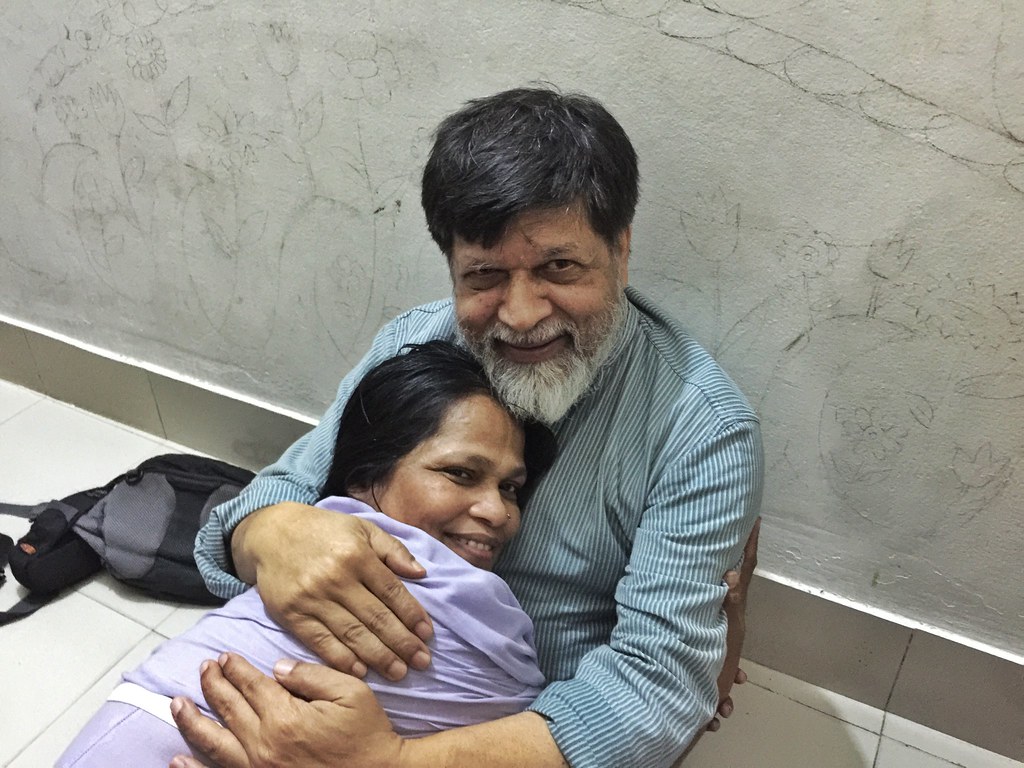 Hajera, my little sister. Photo by one of the kids.
Hajera, my little sister. Photo by one of the kids.
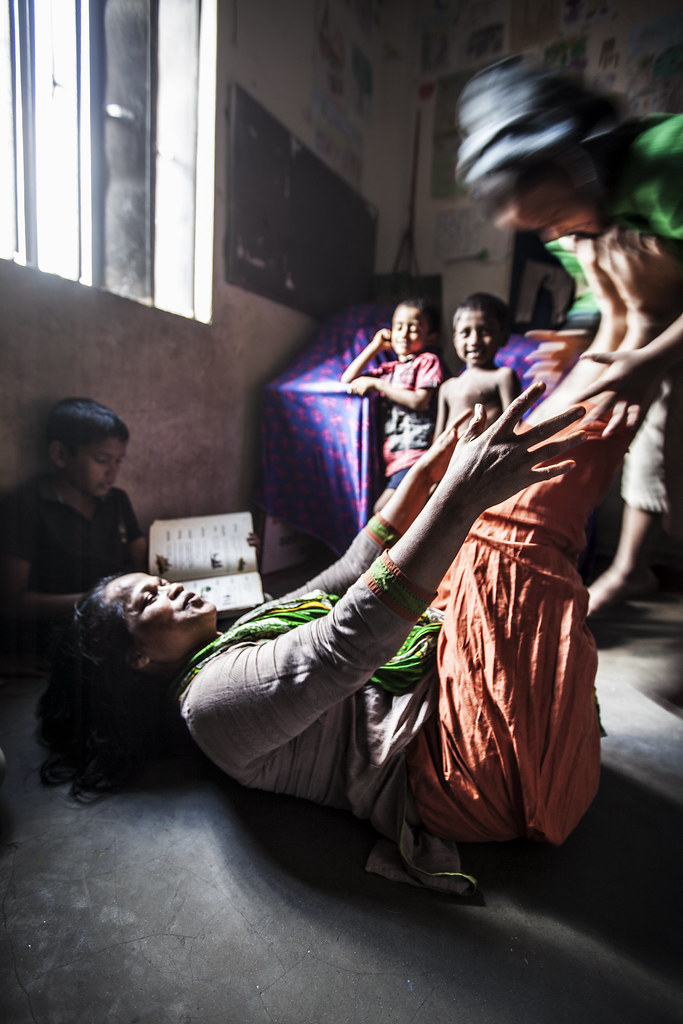 Hajera playing with her kids. Photo: Shahidul Alam/Drik/Majority World[/caption]
Hajera playing with her kids. Photo: Shahidul Alam/Drik/Majority World[/caption]
As the kids get older, there is more need for money, particularly for schooling. Some of the students who support her have graduated and now have jobs. One works in a telecom company. With their help this February, they ran for the first time, a FaceBook campaign to raise money for the centre. The oldest girl Farzana is 13. The daughter of a mutual friend Hasna – who still works in the streets – she has just been admitted into the respectable boarding school, Bharoteshshori Homes. Two of the boys are also being sent to good schools. She has high hopes for the other kids too, though she worries about Shopon who is deaf and mentally ill. But she takes great pride in showing me the bunk beds she’s had made, so the kids no longer have to sleep on the floor.
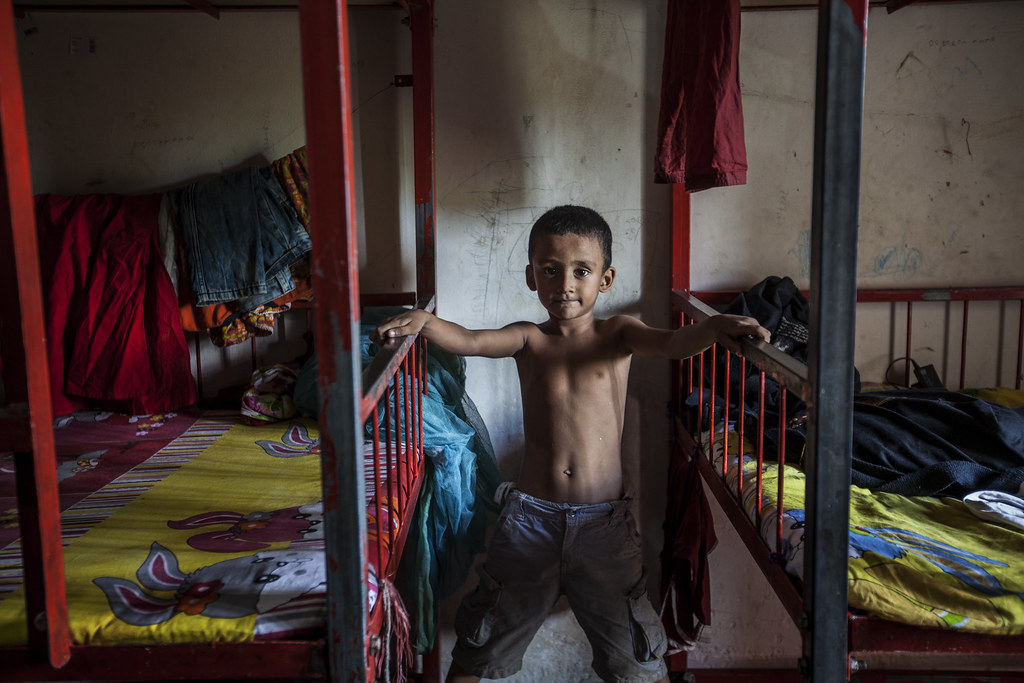 The new bunk beds. Photo: Shahidul Alam/Drik/Majority World[/caption]
The new bunk beds. Photo: Shahidul Alam/Drik/Majority World[/caption]
As I look back at Hajera peering through the little window, bidding me goodbye, I realise how lucky the kids are, to have her as their mother.
Shahidul Alam
7th October 2014
Dhaka
